As every college student quickly finds out, living with roommates can be a joy or a nightmare. You might have to deal with loud noise at all hours of the night, dishes piling up in the sink for days on end and hair all over the bathroom sink. And apparently, these issues can persist regardless of how old your roommates are.
After their roommate’s teenage son raided the alcohol in their mini fridge, one person reached out to Reddit to find out if they were at fault at all in the situation. So below, you’ll find the full story, as well as a conversation with Andrew Misell, Director for Wales at Alcohol Change UK.
This person and their husband keep all of their alcohol locked away in their room

Image credits: Melike B / Pexels (not the actual photo)
But after their roommate’s son snuck in to steal some, his mom decided it was their fault for keeping it in the house
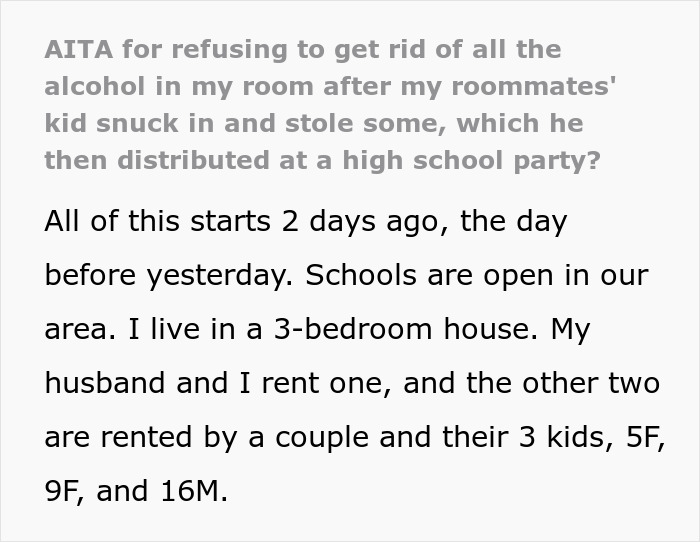
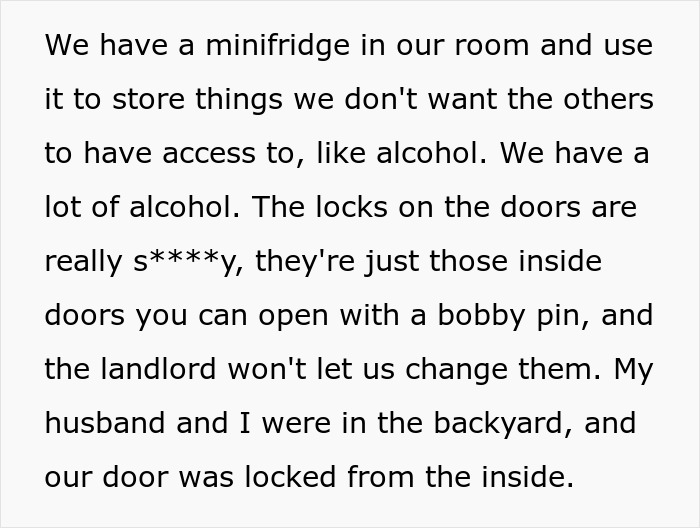
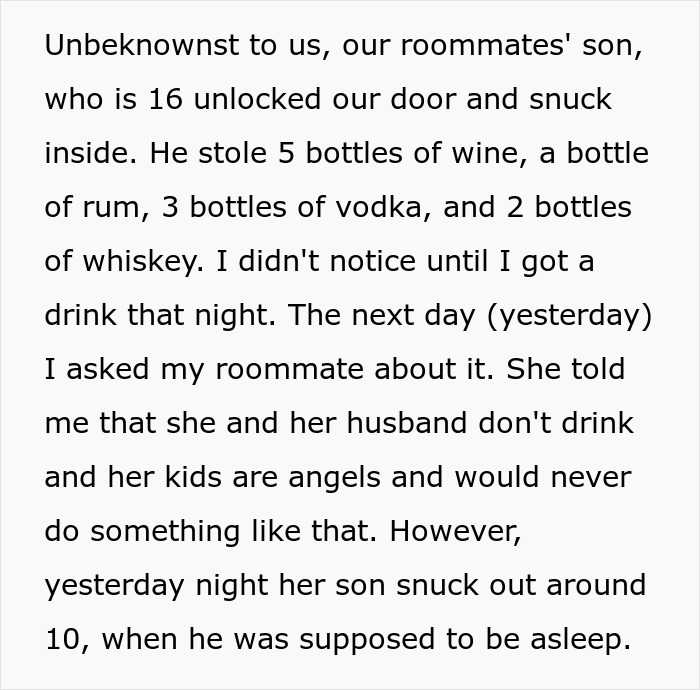

Image credits: Ketut Subiyanto / Pexels (not the actual photo)

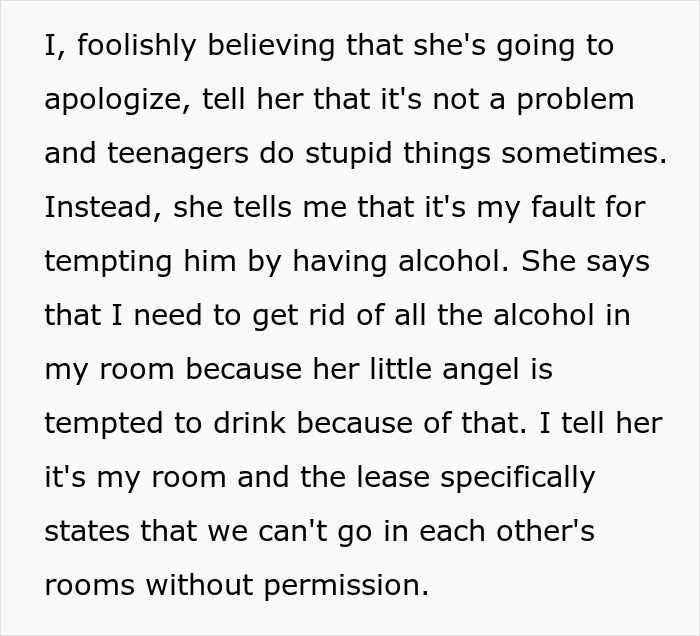

Image credits: milanmarkovic / Freepik (not the actual photo)
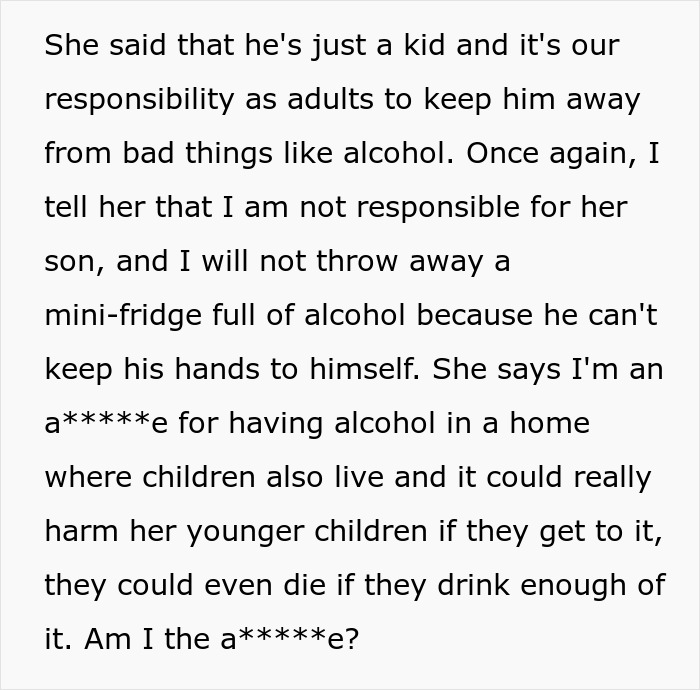
Image credits: ConfusedOstrich2
Parents should always keep alcohol out of their children’s reach
To gain some insight into this situation, we got in touch with Andrew Misell, Director for Wales at Alcohol Change UK. He was kind enough to have a chat with Bored Panda and discuss some of the biggest risks of minors having access to alcohol.
“One reason we have a legal purchase age of 18 for alcohol in the UK is that young people’s bodies are still growing and developing, and alcohol can cause long-lasting damage to a body that is not fully-grown,” he noted.
“Alcohol will also have more effect on someone the smaller they are. So, children can become intoxicated much more easily than adults, and are at much higher risk of alcohol poisoning, which is sometimes fatal,” the expert explained.
“The UK’s Chief Medical Officers say that an alcohol-free childhood is best,” Andrew continued. “That means no alcohol until at least 15 years of age; only very small amounts between the ages of 15 and 18, and never more than once a week.”
So is it ever safe to keep alcohol under the same roof as children?
“Many, many adults keep alcohol at home. Obviously, if you have children, it’s sensible to keep alcoholic drinks out of their reach,” Andrew noted. “That said, one of the most common ways young people get alcohol isn’t stealing it from their parents, but being given it by them.”
“This often happens because parents believe they can safely introduce their children to alcohol, because they want to include young people in family celebrations, or because they believe their youngsters will drink outside the home if not allowed to drink at home,” he explained.
“Building self-confidence and a sense of self-worth in children is the best way to help them avoid alcohol problems”

Image credits: maxim bober / Unsplash (not the actual photo)
Unfortunately, however, Andrew says there is no evidence that this approach works. “In fact, the younger someone starts drinking alcohol – in any setting – the more likely they are to develop an alcohol problem.”
We also asked the expert how parents should approach the topic of alcohol with their kids.
“Rather than introducing children to alcohol by letting them try it, parents need to be talking with them honestly – when they think they’re old enough to understand – about what alcohol is, what it does, and why it’s not suitable for them,” he shared. “That conversation might feel awkward for us as parents, in that it may oblige us to think about how much we’re drinking and why.”
Finally, the expert noted, “The truth is that helping young people have a healthy relationship with alcohol doesn’t always have much to do with alcohol itself. Building self-confidence and a sense of self-worth in children is the best way to help them avoid alcohol problems and a range of mental health issues later in life.”
“That self-confidence and self-worth comes from young people having good relationships with the adults around them,” Andrew explained. “So, often the best thing parents can do is spend time with their children, answer their questions, listen to their concerns, and let them know that they’ll always have someone to turn to.”
Readers assured the author that they had done nothing wrong, and they joined in on the conversation to share more details

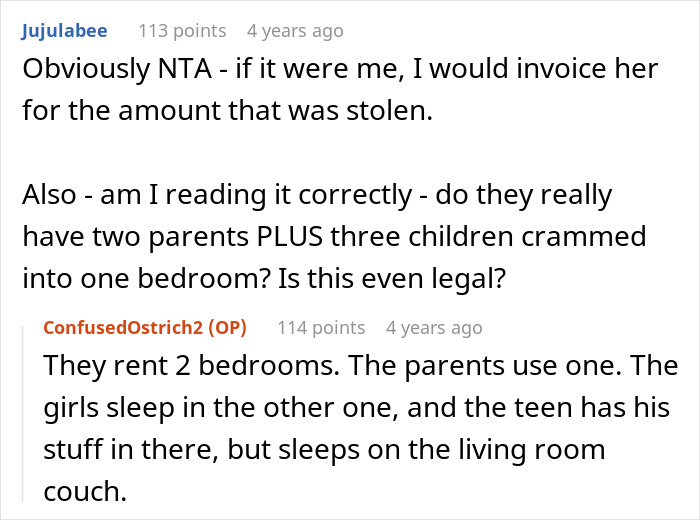




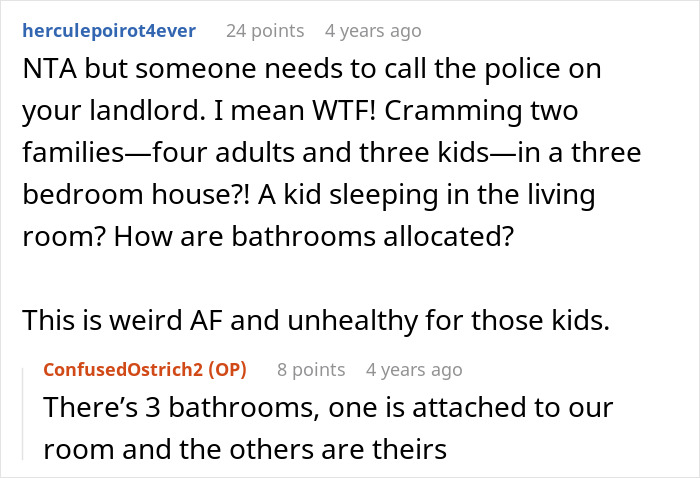

Many readers also urged the author to get law enforcement involved








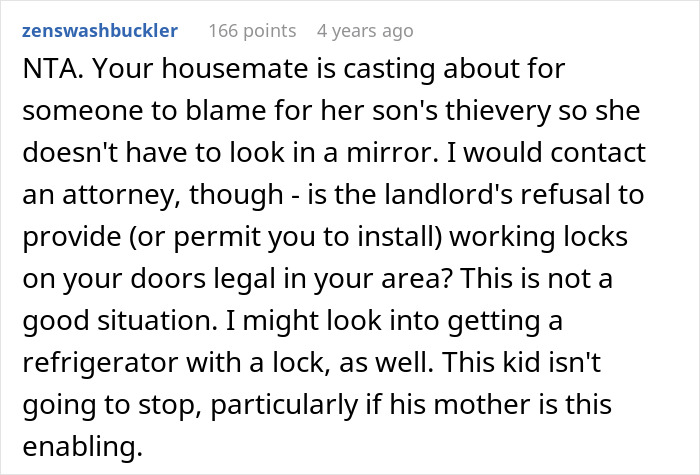




















 English (US) ·
English (US) ·